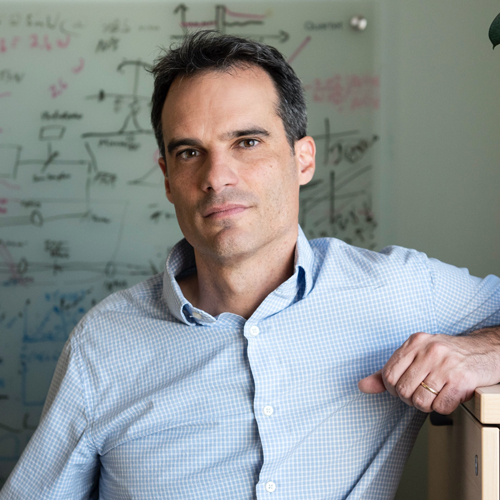Biography
Overview of research interests
Broadly, the Béïque lab is interested in studying synapses, the site of functional connections between neurons in the brain. These tiny structures are highly dynamic in that they can change their function and shape in response to activity. These alterations have been termed “synaptic plasticity” and intense work over many decades has revealed that, in concert with other determinants of cellular excitability, these plasticity mechanisms decisively influence how information is processed and stored in the brain. Dr. Béïque’s research activities all share the common thread of seeking to study, in mechanistic terms, the fundamental features of the central neuron’s function and plasticity. To achieve this, they are using a combination of cellular electrophysiology, multiphoton imaging of neuronal morphology and calcium dynamics and optogenetics. Current projects seek to understand fundamental features of dendritic processing (using rapid activation of individual synapses by twophoton uncaging of glutamate and calcium imaging) as well as basic plasticity mechanisms (ex: homeostatic plasticity). Moreover, the lab is interested in understanding how synaptic plasticity processes are engaged or altered following brain insults such as stroke. Finally, they are using optogenetic methods and cellular electrophysiology to study fundamental aspects of longrange connectivity in the brain, with a focus on regions involved in mood regulation.
Grant support
The lab is funded by grants from the Canadian Foundation for Innovation (CFI), Canadian Institute for Health Research (CIHR), Natural Sciences and Engineering Research Council of Canada (NSERC), Heart and Stroke Foundation of Canada (HSFC), Canadian Partnership for Stroke Recovery (CPSR) and the Brain and Behavior Research Foundation (BBRF, formally NARSAD).
